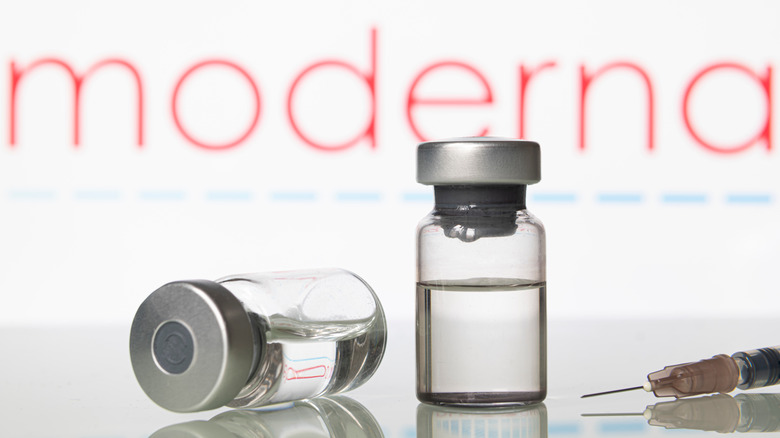Why Cancer Patients Should Consider Getting The COVID-19 Vaccine
Depending on the type of cancer a person is diagnosed with, it will fall into 1 of 2 categories: solid cancers or blood cancers, per St. Jude Children's Research Hospital. Solid cancers present as malignant tumors that form in the bones, organs, or muscles. Blood cancers, on the other hand, do not involve tumors and primarily impact blood cell function.
In a recent COVID-19 study published in the Journal of Clinical Oncology analyzing over 64,000 partially or fully vaccinated adults in the U.S. diagnosed with cancer, researchers examined levels of vaccine protection as it pertained to cancer type, treatment method, age, sex, race, and location, among other risk factors (via HealthDay). It was determined that regardless of whether a patient was diagnosed with solid cancer or blood cancer, receiving 2 doses of a COVID-19 mRNA vaccine strengthened protection across the board by reducing rates of breakthrough infections. Between Pfizer and Moderna, researchers were also able to determine which vaccine proved most effective for those with blood cancers.
Moderna may be more effective for those with blood cancer
Study findings indicated that among vaccinated patients with solid cancers or blood cancers, those with blood cancer were more susceptible to breakthrough COVID-19 infections and severe complications. However, between the 2 mRNA vaccines, researchers found that Moderna provided increased protection against breakthrough infections in those with blood cancers in comparison to Pfizer (via HealthDay).
As cited in the study, researchers also acknowledged that outside factors, such as the use of immunosuppressive medications or having undergone bone marrow transplants, influenced breakthrough infection risk in vaccinated cancer patients.
Overall, the study suggests that many cancer patients — regardless of type — could benefit from COVID-19 vaccination, as cancer patients are among those most vulnerable to severe infection. Study leader Jing Su spoke on the significance of these findings in a public statement, explaining the benefits of better understanding different levels of vaccine immunity in cancer patients. "This could guide us to better understand whether cancer patients will have good responses to cancer vaccines and if they are at a higher risk of infection of other viruses, such as the flu," Su told HealthDay.


